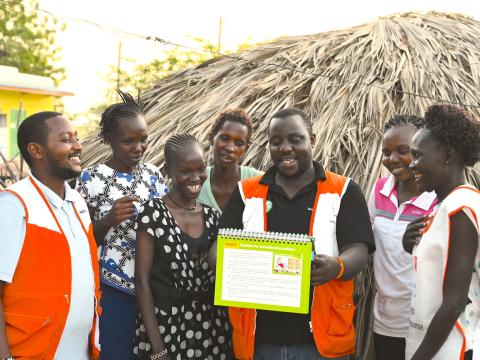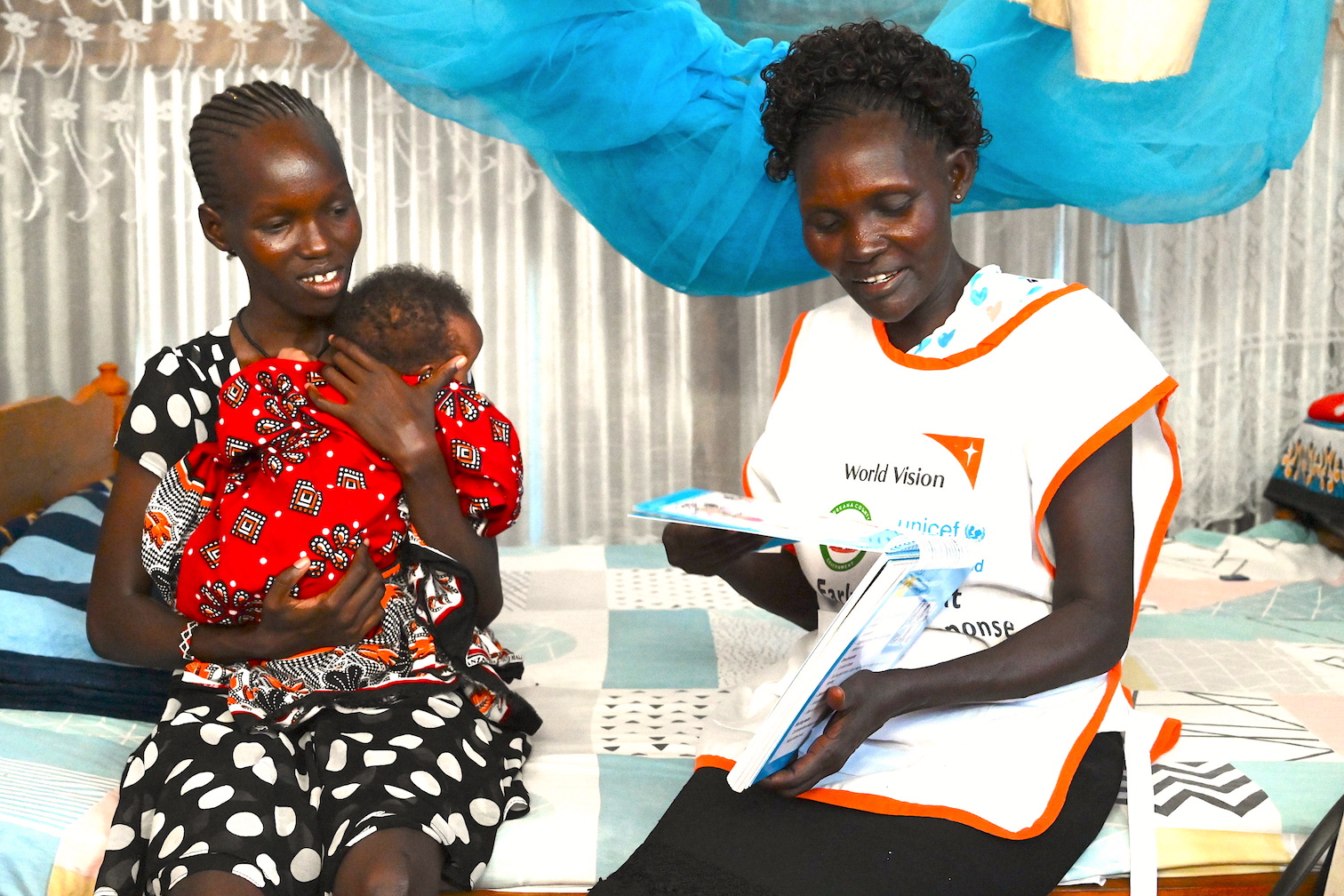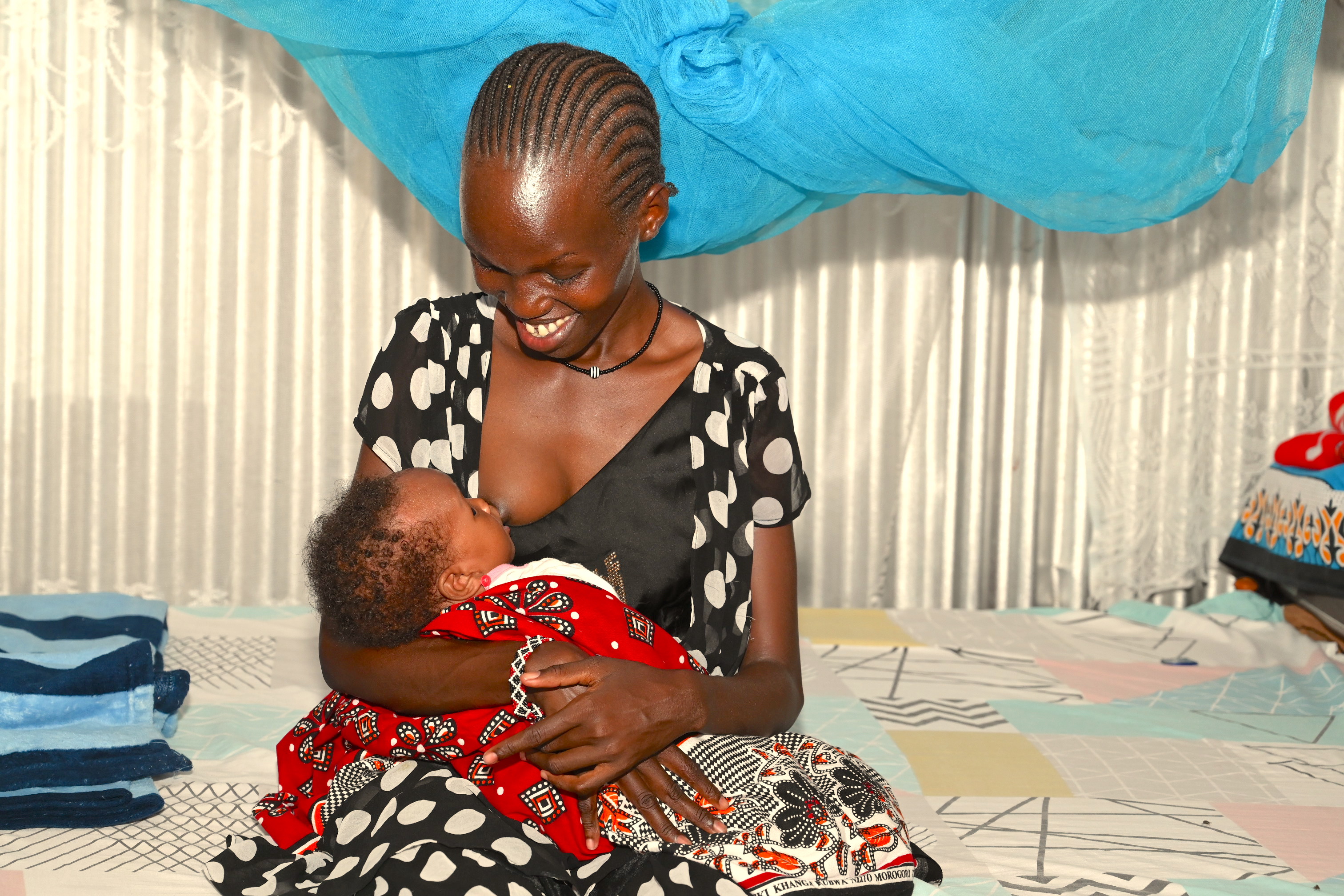Women groups tackle cultural taboos to improve maternal and child health in Turkana County

By Sarah Ooko, World Vision Senior Communications & Media Specialist, Kenya
Peris rocks her three-month-old daughter lovingly at her home in Namibia village, situated in Turkana County, Kenya.
As a first-time mother, she is grateful to God for enabling her to enjoy her pregnancy journey and have a safe delivery. Peris attributes this feat to the health education that she received from Community Health Volunteers (CHVs) through her Mother-to-Mother support group meetings.

The group provides a platform where pregnant women and mothers with young children, as well as other people with similar interests, come together in a safe place to exchange ideas, share experiences, and receive factual information on breastfeeding, child nutrition, child rearing and women’s health. This helps in tackling myths and taboos that can endanger the lives of pregnant women and children.
World Vision is supporting the activities of these groups to improve maternal and child health, under its Nutrition Improvement Through Cash Transfer and Health Education (NICHE) project that is funded by UNICEF in Turkana, Kitui and Kilifi counties, based in Kenya.

According to Peris, the support group helped her to dispel health and nutrition myths that pose risks to children in her community. An example is the belief that pregnancy check-ups and deliveries are best done by Traditional Birth Attendants (TBAs), as per the community's culture.
"Many women rely on these unskilled birth attendants yet they lack the required professional training. This contributes to a lot of mother and child deaths here. Thanks to the mother-to-mother support groups, I learnt that it is important to go for check-ups at least four times during pregnancy at the hospital and give birth there. You will be dealing with trained health specialists who can detect complications and solve them early enough," she says.

Through the Mother-to-Mother support groups, Peris was also privileged to learn about the importance of exclusively breastfeeding her child for the initial six months after delivery, as per the World Health Organisation (WHO) guidelines.
Research show that the milk, especially the type produced in the early days of breastfeeding (known as colostrum) is rich in antibodies that boost the immunity of children and protect them from a myriad of childhood illnesses.

In addition, breast milk is easily digested and therefore protects children from constipation, diarrhoea and stomach aches. It also guards against obesity by ensuring that babies have healthier weights as they grow.
"What may not be common knowledge to most people is that breast milk also boosts the intelligence of babies which is important for their future learning outcomes and school performance," says Evans Wanunda, a public health expert and head of the World Vision NICHE Project in Turkana County.

For optimal results, babies are supposed to be initiated into breastfeeding within an hour after birth. Aside from the health benefits, this practice facilitates emotional bonding of the mother and the baby. It also has a positive impact on the duration of exclusive breastfeeding.
However, certain cultural practices have been dissuading women from breastfeeding their children early enough. For instance, as per the customs and traditions of the Turkana people, newly born children can only be breastfed once their naming ceremony has taken place.
So, when delays happen, there is a high likelihood of the child starving or being given alternative food sources like goat milk or porridge that the community views as equal alternatives for breastmilk. Yet, the latter is more superior.

The use of alternative foods is also discouraged by the WHO because once babies have gotten used to their taste, they may find it hard to adapt to, or accept breast milk afterwards.
"Since I wanted the best for my child, I began breastfeeding immediately and I can see that the growth and development of my baby girl is going on well. People used to say that breast milk is not enough but that is just a myth as I have more than enough. So long as you avoid stress and eat a healthy balanced diet with plenty of fluids, you do not need to worry about the milk quantities going down. And the more you breastfeed, the more the milk will be produced," she says.

Just like Peris, many more women in Turkana are continuing to improve their well-being and that of their children, thanks to the health education received through the mother-to-mother support groups supported by World Vision and UNICEF.